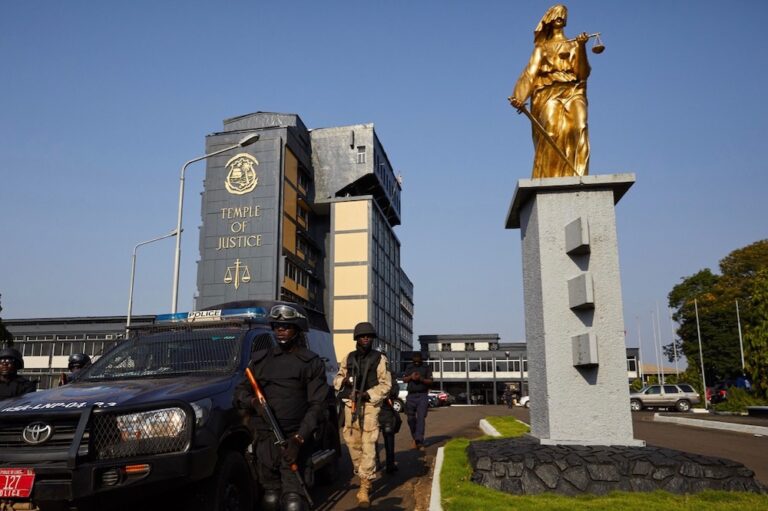(RSF/IFEX) – On 29 October 2002, RSF welcomed Liberian President Charles Taylor’s decision to free Hassan Bility, editor of the privately-owned weekly “The Analyst”, who has been held in a secret location for the past four months. However, the organisation also noted its concern over the conditions outlined for his release. On 28 October, President […]
(RSF/IFEX) – On 29 October 2002, RSF welcomed Liberian President Charles Taylor’s decision to free Hassan Bility, editor of the privately-owned weekly “The Analyst”, who has been held in a secret location for the past four months. However, the organisation also noted its concern over the conditions outlined for his release.
On 28 October, President Taylor said that Bility and other prisoners would be released if they signed a statement “acknowledging” that they would be rearrested “in the event of any violations,” which were not defined. “This is not a total release or a parole, but a form of reprieve,” the president said. No date was set for Bility’s release.
“Freeing a journalist and then preventing him from doing his job, under threat of arrest, is a form of censorship,” RSF Secretary-General Robert Ménard said in a letter to Taylor, urging him to free Bility unconditionally, without the threat of being imprisoned again.
Bility, whose newspaper is very critical of President Taylor, was arrested on 24 June and accused of collaborating with the Liberians United for Reconciliation and Democracy (LURD), a rebel movement based in the country’s north. Jailed without trial and in a secret location, Bility was considered a prisoner of war and was expected to be tried by a military court.
President Taylor’s announcement follows international demands for news of Bility’s whereabouts and for the editor to be formally charged, in accordance with the law.


